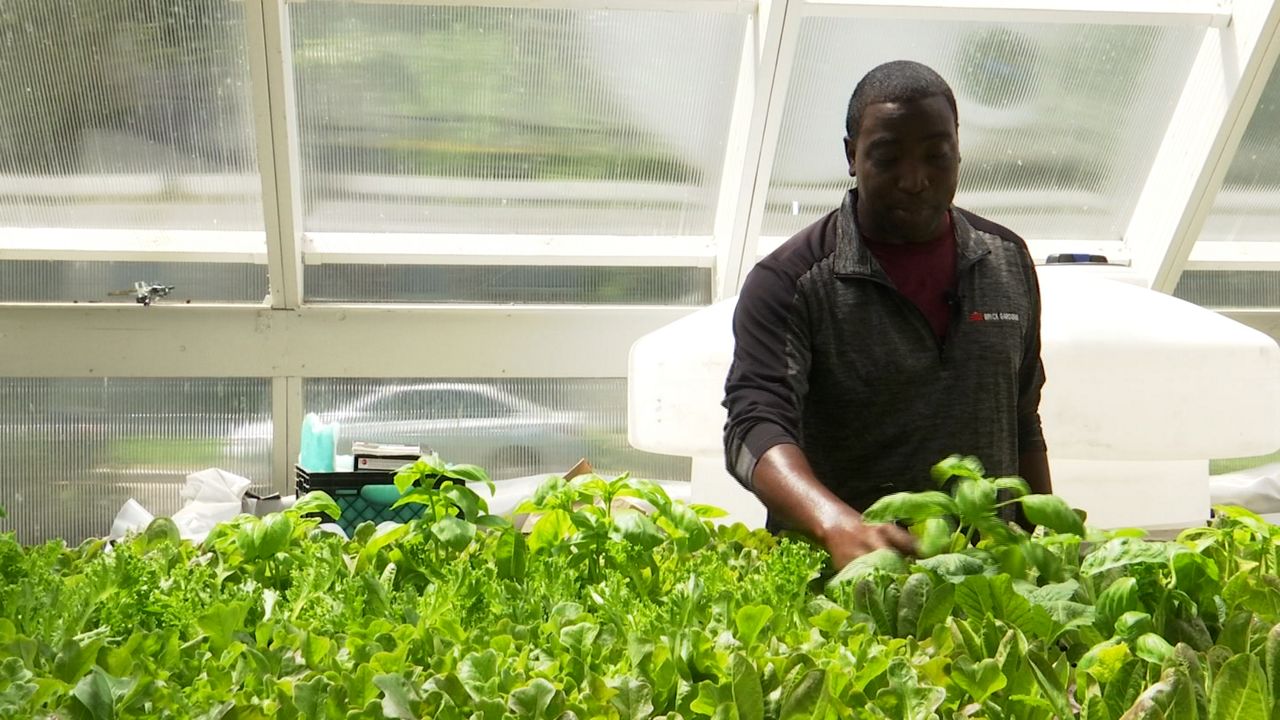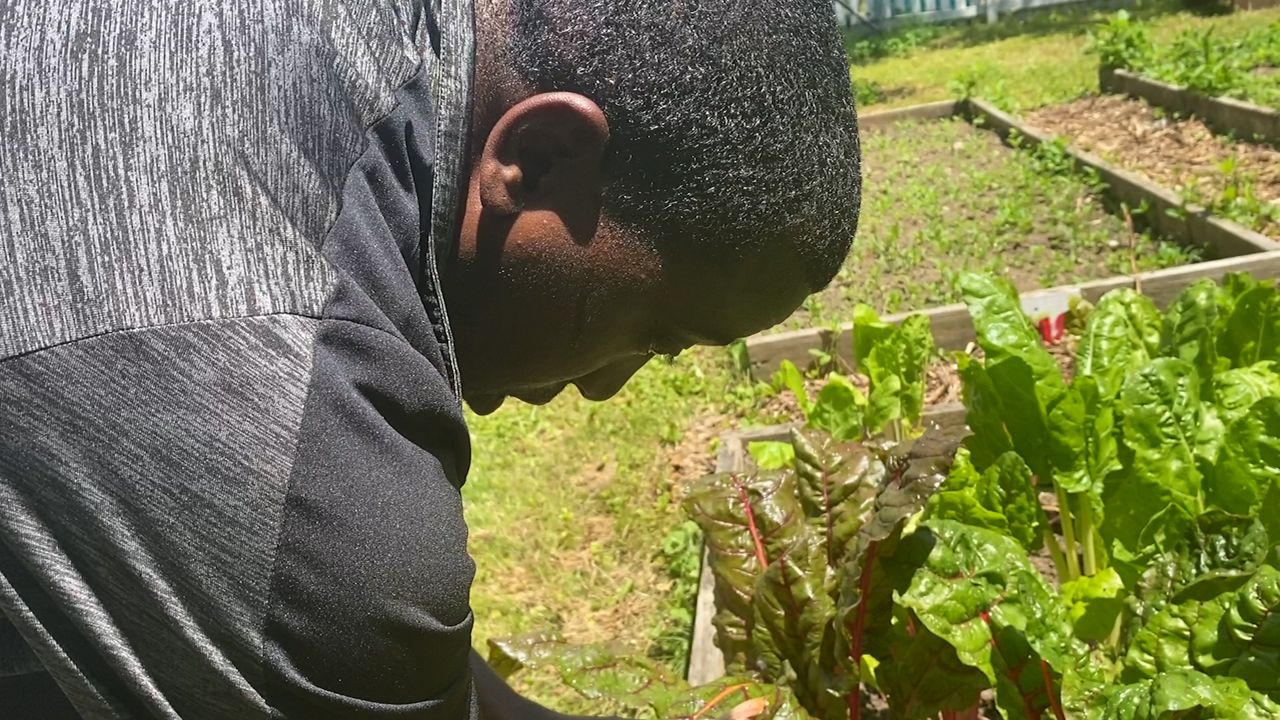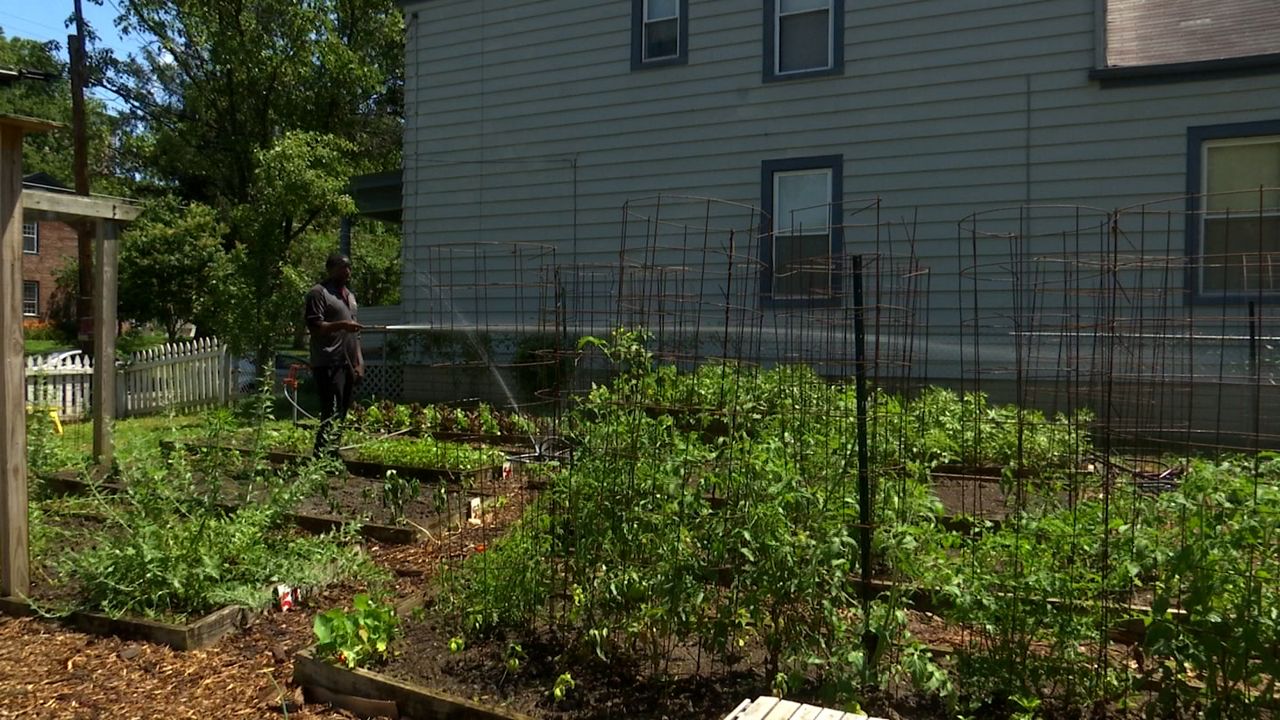CINCINNATI — On two small lots in Cincinnati’s Madisonville neighborhood, a small farm has taken root.
What You Need To Know
- Brick Gardens turns vacant lots into farms
- The organization uses a combination of aquaponics, greenhouses and traditional gardening
- It produces low cost produce for neighbors
- Brick Gardens has three locations and Madisonville is the most recent
Growing enough produce to employ a handful of locals and feed even more, Dominique Peebles said it’s been a productive start for one of his newest gardens. All it takes is a small greenhouse, a few dozen outdoor plots across the street and little creativity.
When he founded Brick Gardens back in 2017, Peebles had a vision to turn vacant buildings across Cincinnati into indoor farms, using aquaponics.

“It creates like its own habitat which is a bunch of good stuff that the plants need,” he said showing off the aquaponic tank at the Lighthouse Green Learning Lab. “Under here we’ve got goldfish, so we feed the goldfish, they eat, do their business, the water shoots up through here and goes out to the plants.”
Peebles said the system recycles its water, provides its own natural fertilizer and the plants keep the water oxygenated for the fish. All he has to do is feed the fish.
“That can produce stuff all year round,” he said.
He considers it an ideal way to grow food without much space or effort. Peebles said his aquaponic lettuce and basil grows faster and more efficiently than anything he’s planted in the garden, meaning he can get it out to the local farm stand much faster. There’s only one problem, a lack of diversity.
“You can only feed people with so many salads,” he said. “The problem is a lot bigger than what we can provide growing indoors so that’s why we also started looking for indoor spaces that would allow us to do both.”
The aquaponics system is great for small, leafy greens, but for bigger plants, Peebles had to look outside.

In partnership with Lighthouse Youth Services and GreenWorks Ohio River Valley, opened his third brick garden in 2020 growing fresh fruits and vegetables for the Madisonville community whatever way he could.
Lighthouse owns the land and GreenWorks hires the locals to harvest and assist with the gardens as well as run the biweekly farm stand, selling the offerings at an affordable price to neighbors.
“That’s actually how we’re able to do as much as we do because our partnerships are so solid,” Peebles said.
That way Peebles can focus on what to grow and where.
“We do a lot of digging to figure out what people in the community want and then we are really intentional about growing that stuff,” he said.
In his literal garden you can find Swiss chard, tomatoes and cherry trees, while his greenhouse incubates the next season’s vegetables and the aquaponics tank takes care of the greens.
In the coming years, Peebles hopes to expand his offering to other plots throughout the neighborhood opening a sort of pick your own garden.
He knows gardening and food insecurity is a big problem, which needs a multifaceted solution while he also understands there are a lot of groups hoping to provide their own. He hopes his offers a degree of diversity few others can.
“None of them did both indoor and outdoor farming and we thought that would be something that would help us provide more food for the people that need it and would also create enough work to provide jobs,” he said.




